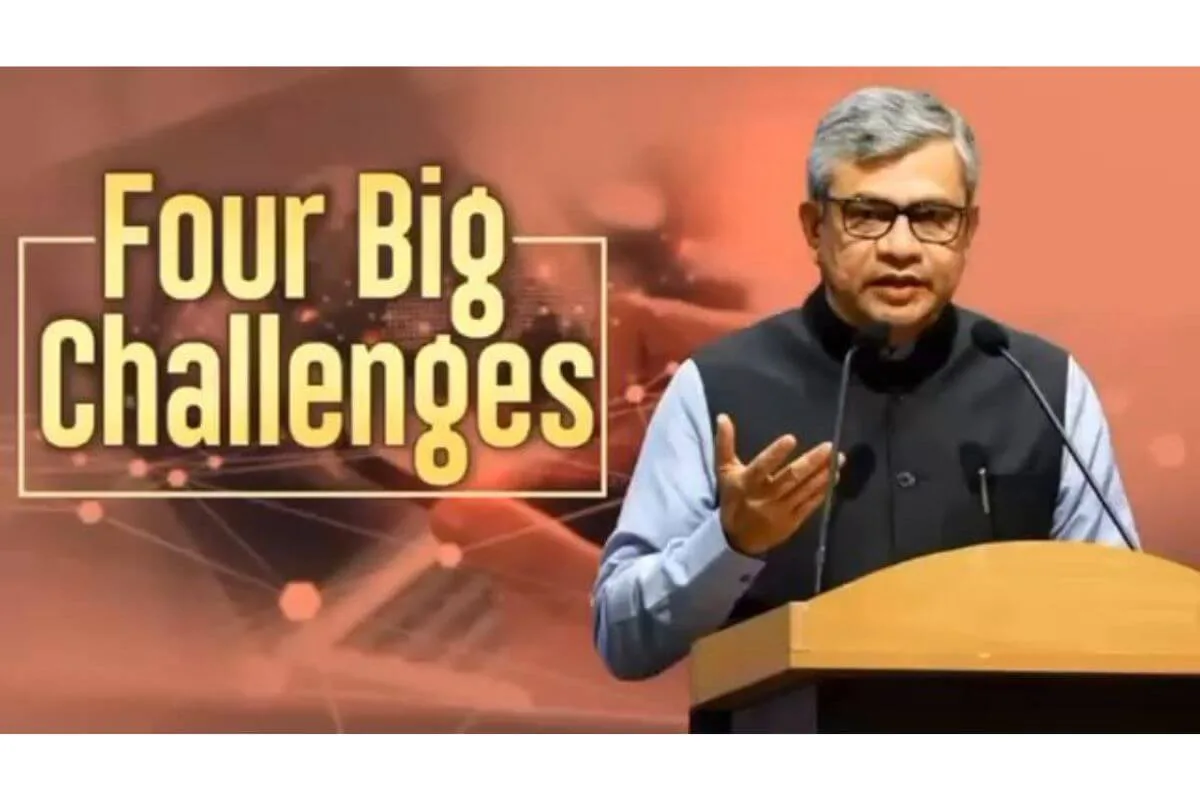
Union Minister of Information and Broadcasting Ashwini Vaishnaw called for accountability in Digital Media to combat fake news and safeguard democracy. He delivered the keynote address virtually, highlighting India's vibrant media ecosystem and the challenges faced by the sector during the National Press Day 2024 celebrations on Saturday at the National Media Centre in New Delhi organised by the Press Council of India.
Also Read: India Leads in AI Adoption, Outpacing Global Average, Says BCG Report
Vaishnaw pointed out that India's media ecosystem includes 35,000 registered newspapers, numerous news channels, and a robust digital infrastructure. He noted that investments in 4G and 5G networks have propelled India to the forefront of digital connectivity, with the lowest data prices globally.
However, Vaishnaw also raised concerns about four key challenges that society is facing due to the changing landscape of media and press:
1. Fake News and Disinformation
The Minister questioned the relevance of Safe Harbor provisions for digital platforms, stressing the need for a new framework to curb misinformation and ensure accountability.
The spread of fake news undermines trust in the media and poses a threat to democracy. During his address, Ashwini Vaishnaw raised a critical question on the rapid growth of digital media and the responsibility for the content published on these platforms. The concept of Safe Harbor, developed in the 1990s when the availability of digital media was limited to select users in universities and research institutes, provided immunity to platforms from being held accountable for user-generated content.
He mentioned that globally, debates are intensifying over whether the Safe Harbor provisions are still appropriate, given their role in enabling the spread of misinformation, riots, and even acts of terrorism. "Shouldn't platforms operating in a context as complex as India adopt a different set of responsibilities? These pressing questions underline the need for a new framework that ensures accountability and safeguards the social fabric of the nation," he added.
Also Read: AI-Driven Transformation to Add 33.9 Million Jobs to India’s Workforce by 2028: Report
2. Fair Compensation for Content Creators
Vaishnaw highlighted the financial strain on traditional media due to digital platforms' dominance, urging fair compensation for conventional media creators.
The shift from traditional to digital media has financially impacted conventional media, which invests heavily in journalistic integrity and editorial processes. Vaishnaw emphasised the need for fair compensation for traditional content creators, addressing the asymmetry in bargaining power between digital platforms and conventional media. "The efforts made by the conventional media in creating content needs to be fairly and suitably compensated," he said, according to the Ministry of Information and Broadcasting.
Also Read: Everyone in India Can Ask AI Assistants Questions About Health Issues, Says Meta Official: Report
3. Algorithmic Bias
He warned against the social impact of algorithms prioritising sensational or divisive content, calling for platforms to address biases, especially in India's diverse society.
Algorithms driving digital platforms prioritise content that maximises engagement, incites strong reactions and thereby defines the revenue for the platform. These often amplify sensational or divisive narratives. Vaishnaw highlighted the social consequences of such biases, particularly in a diverse nation like India, and called on platforms to come up with solutions that account for the impact their systems have on our society.
Also Read: Microsoft Says AI Demand Continues to Exceed Its Available Capacity
4. Impact of AI on Intellectual Property
Vaishnaw raised concerns over AI systems using creators’ work without proper recognition or compensation, calling it both an ethical and economic issue.
The rise of AI presents ethical and economic challenges for creators whose work is used to train AI models. The Union Minister highlighted the significant upheaval the creative world is facing due to advancements in artificial intelligence. Addressing the challenges posed by AI systems, he emphasised the need to safeguard the intellectual property (IP) rights of original creators. "AI models today can generate creative content based on vast datasets they are trained on. But what happens to the rights and recognition of the original creators who contributed to that data? Are they being compensated or acknowledged for their work?" the Minister questioned. "This is not just an economic issue, it is an ethical issue too", he added, according to the MIB.
In closing, the Minister emphasised the importance of preserving the media's role in democracy and urged collaborative efforts to address these challenges and work toward a Viksit Bharat by 2047.















